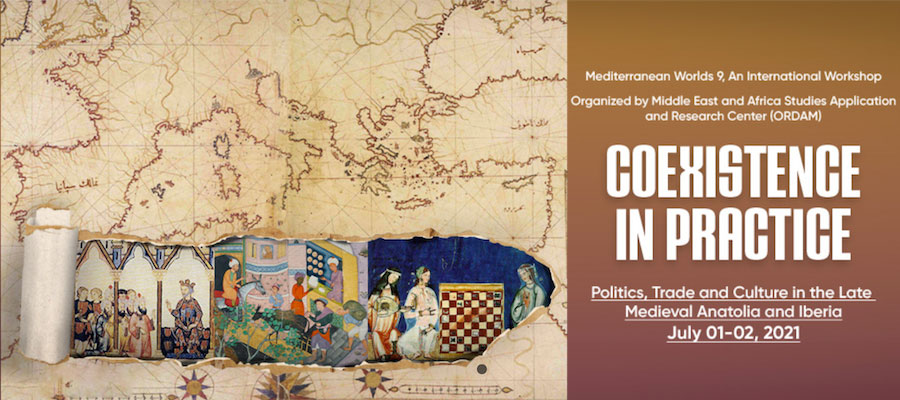Coexistence in Practice: Politics, Trade and Culture in the Late Medieval Anatolia and Iberia, Fatih Sultan Mehmet Vakif University, July 1–2, 2021
Stretching along continents, the Mediterranean Sea has played an important role in creating an environment of, voluntary or otherwise, cultural interactions among distinct groups throughout its history. Through the practices of coexistence, peoples of the Mediterranean have built up a common cultural repertoire and tradition. In the late Medieval Mediterranean coexistence was a way of life, as Brian Catlos stated, “encouraging acculturation and communication, but also provoking anxiety and defensiveness” (2014). One can easily find the effects of these interactions in everyday practices of culture, such as in religion, commerce, art, and education. Coexistence sometimes manifested itself as codependency and collaboration, a way of coping with the complexities in times of wars, epidemics, and various other crises. Throughout the Middle Ages, the Iberian Peninsula and Anatolia were places of conflict, but also of exchange and collaboration between the Islamic and Christian powers that ruled over those territories. Objects, ideas, scripts and people moved beyond cultural and religious borders as booty of conquest and items of trade.
“Coexistence in Practice: Politics, Trade and Culture in the Late Medieval Anatolia and Iberia” is organized by Fatih Sultan Mehmet Vakif University’s the “Middle East and Africa Studies Application and Research Center (ORDAM)” and “The Society for the Mediterranean World Studies (MEDWORLDS)”, to be held in Istanbul on 01-02 July 2021. The workshop aims to provide a platform for medieval history researchers to discuss topics related to broadly defined practices, experiences and spaces of “living together” in geographically distant but experience-wise similar societies in Anatolia and Iberian Peninsula in the 13th – 15th centuries. More importantly, this workshop enables participants to learn from other approaches and research experiences. We especially seek interdisciplinary contributions to open up discussions and share thoughts on issues about the theme of the workshop.
Some of the themes we want to explore include:
- Modes of coexistence, especially in times of crises and catastrophes,
- Convivencia;
- Local and cross-border trade;
- Transfer of knowledge, texts, music, arts and architecture; and
- Cross-confessional communities.
Contributions will be collected in an edited book.
